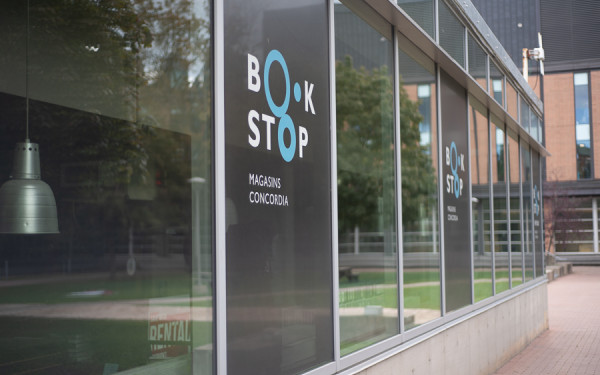Editorial: Bookstore privatization can’t pass the test
The Concordia Book Stop was effectively privatized this past June in a partnership deal with Follett, a U.S. company worth $2.7 billion according to its website.
This may seem an unfortunate—but inconsequential—development to many members of the student population, but it has consequences and speaks to an impulse that runs counter to what our institution should stand for.
The administration portrayed the move as a necessary measure to keep costs down, claiming the school bookstore was struggling financially, an apparently dubious claim.
Anecdotes abound of inconvenience and frustration this fall as students and professors searched for stability in required texts. It remains to be seen whether these issues will be ironed out with time, but one thing for sure is that Follett’s loyalty is sure to be far removed from students when compared to its bottom line.
The largely unionized staff was transferred out of the store or let go. The new store, run by Follett Canada, employs non-union, part-time staff members. Let us make no mistake: this was a union-busting move that weakens our institution.
Learning should not be for profit. Yet, corporate interests are pervasive in education. The makers of textbooks and similar materials are getting rich off of students. Every semester, Concordia students are faced with a new list of required textbooks that cost hundreds of dollars. It’s no wonder some turn to less-than-legal means to obtain their readings.
Concordia students are captive consumers, with some mandatory course texts available exclusively through Concordia’s bookstore. Students have no choice but to capitulate to the high prices that go into the pockets of massive publishers.
Further, an analysis by _The Link_ found that whereas the Concordia bookstore’s previous privacy policy explicitly protected your information, Follett is free to share it with third parties—and does.
Why couldn’t Concordia make its own bookstore sufficiently profitable? Is it because the path to the profits it seeks are through eliminating fair labour and selling your information?
This is what privatization leads to—the people who already own all the shit are about to own your shit.
The new Book Stop will prioritize profit—that's what companies do. But it won't go towards making books cheaper, or improving your lab equipment, or fixing the tunnel downtown. That money, or much of it, will go to the United States to line some billionaire’s pockets.
Concordians can't take the skyrocketing costs of books, tuition, and living. Capitalism will take everything you have and sell it back to you a little bit shittier. It's up to us to hold the university accountable and fight for control over our educational resources.
Professors should consider alternative means of distributing required texts, such as the Concordia Community Solidarity Co-op Bookstore. Even better, we urge them to find ways to teach students without an additional cost burden at all.




2_600_375_90_s_c1.jpg)


